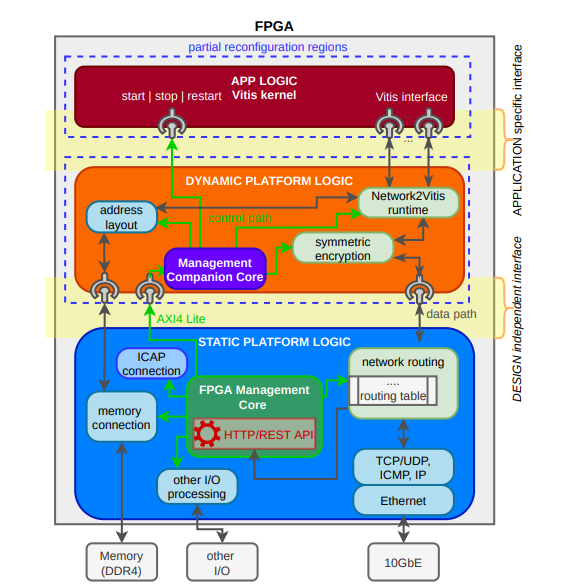Hi there!
I'm currently a Postdoctoral Researcher at IBM Research Zurich. You can read more about my ongoing research here!

This is an update to my previous blog post in 2019 and 2023. I use, among others, the Signal App as messenger. Of course, I also want to use the advantages of running a client also on my Laptop with my current distribution openSUSE Tumbleweed. However, the Signal foundation does only provide packages for Ubuntu-based systems, so I need to build it by myself. Due to permanent updates of the app, I’ve to rebuild it once in a while…and here is how:
Posted
#How To #Linux

Zotero is a great tool and simplified my life as researcher a lot (thanks for that!]), especially in connection with the Zotero Connector. However, recently, it failed to import articles from the ACM Digital Library. After some search and some experiments, I worked out a solution to fix this: In the settings of the browser plugin (so right click on the logo in the right upper corner of your browser address line), you should Reset Translators, as shown in the image: I don’t know why, but additionally you need to set in the advanced options reportTranslationFailure to true: Hope that helps…
Posted
#How To #Linux #Research

I use 1Password and KeePassXC as password managers (and can recommend both!). Recently, I needed to overcome an issue blocking the 1Password browser plugin from connecting with the 1Password app. As it turned out, the connection was blocked from the 1Password app, because the browser I was using (vivaldi) is not in the official-supported list of 1Password. Since Vivaldi is “more or less” Chromium, it should work nevertheless. After some search, I found the solution here.
Posted
#How To #Linux

Abseits von “Spielereien”: Um LLMs (ChatGPT & Co) produktiv verwenden zu können, müssen sie verlässliche Antworten für definierte Anwendungen liefern können. Dieser Gretchenfrage und ihre zugrundeliegenden Herausforderungen sind Christian R. Ulbrich und ich in einem Gastbeitrag für Swiss Engineering STV UTS ATS nachgegangen. Wir diskutieren auch ob “fine-tuning” (also “gezielte Fortbildungen” für LLMs) eine Lösung sein kann… Der Artikel wurde Ende letzen Jahres hinter einer Paywall veröffentlicht, aber wir durften das PDF hier veröffentlichen.
Posted
#research #internet politics
Reading is one of my big hobbies. And in the meantime, I also read non-fiction and scientific literature on my Kobo eReader. For me, one important part of reading and learning from non-fiction books is to make annotations. Kobo supports making highlights and annotations in ebooks. But the question is now, how to get them from the eReader for further usage or processing (and of course, on a Linux machine)?
Posted
#How To #Linux

FPGAs promise to accelerate HPC workloads and ML/AI models while also being energy efficient. However, today’s FPGA tool chains are cumbersome to use, limited to specific use cases and devices, and mostly fail to support workflows requiring multi-node application scenarios. Last month, I was invited to give a talk at HiPEAC’s F4HD workshop to deliver the message “Don’t forget the compiler: Why FPGAs for HPC need to look beyond circuits and applications”….
Posted
#research

How can we bring different optimized-down-to-the-gate FPGA libraries and latest state-of-the-art ML and AI together? In my research of 2022 and 2023, I answered this by inventing the Operation Set Architectures. The basic principle is to define operation blocks at an intermediate representation that is 1) low enough to enable compiler optimizations but 2) high enough to still allow easy architecture-specific optimizations. My research was published in the IEEE Compture Architecture Letters with Advancing Compilation of DNNs for FPGAs using Operation Set Architectures and the top-tier IEEE EDGE conference with DOSA: Organic Compilation for Neural Network Inference on Distributed FPGAs.
Posted
#research
This is an update to my previous blog post in 2019. I use, among others, the Signal App as messenger. Of course, I also want to use the advantages of running a client also on my Laptop with my current distribution openSUSE Tumbleweed. However, the Signal foundation does only provide packages for Ubuntu-based systems, so I need to build it by myself. Due to permanent updates of the app, I’ve to rebuild it once in a while…and here is how:
Posted
#How To #Linux

Die Schweizer Zeitschrift Computerworld hat über unsere Arbeit für das IBM cloudFPGA projekt berichtet: Logikchips für die Hyperscaler-Cloud. Ein gute zusammenfassender Bericht über cloudFPGA auf deutsch!
Posted
#research

What does it take to realize highly dynamic cloud services like Function-as-a-Service with FPGAs? Find out in my recent paper titled A Case for Function-as-a-Service with Disaggregated FPGAs (DOI: 10.1109/CLOUD53861.2021.00047). Published in the Proceedings of the 2021 IEEE 14th International Conference on Cloud Computing (CLOUD). Abstract The slowdown of Moore’s law and the end of Dennard scaling created a demand for specialized accelerators, including Field Programmable Gate Arrays (FPGAs), in cloud data centers.
Posted
#research